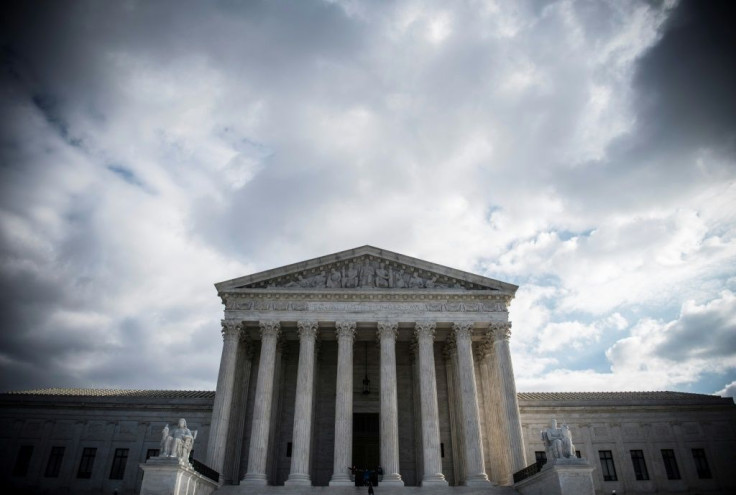How A Teen's Snapchat Post Went All The Way To The Supreme Court
Outbursts are hardly rare among teens, but the venting of a 14-year-old on Snapchat has somehow found its way to the Supreme Court. Brandi Levy's comments on social media got her suspended from the cheer team in 2017 in what then seemed like an event lacking in national importance, but the implications it has on student speech will exhume Vietnam-era law when arguments begin on the high court Wednesday.
Now a college freshman, Levy had written in 2017, “[Expletive] school [expletive] softball [expletive] cheer [expletive] everything.”
“I was a 14-year-old kid. I was upset, I was angry. Every 14-year-old kid speaks like that at one point,” the Pennsylvania teen told the Associated Press.
When her cheer coaches found out about the post, they booted her from the team for a year. Levy’s parents, however, were more concerned with her emotional state and the effect the suspension would have on it.
The lawsuit they brought has been working its way through lower courts ever since. An initial ruling in their favor was upheld by the 3rd U.S. Circuit Court of Appeals in Philadelphia. While schools can punish behavior that disrupts their campus environment, the court said that right doesn’t extend to a student’s entire life.
School advocates, however, worried about the effect the ruling could have on cyberbullying. It wasn’t enough that the Philidelphia circuit court specified that its ruling did not touch on “the First Amendment implications of off-campus student speech that threatens violence or harasses others.”

The school district itself says it’s not looking to rock the constitution, just discipline an out-of-line student.
“This case is about how schools address the bad days,” wrote Mahanoy Area School District lawyer Lisa Blatt. “[Schools shouldn’t have] to ignore speech that disrupts the school environment or invades other students’ rights just because students launched that speech from five feet outside the schoolhouse gate.”
Levy’s allies at the American Civil Liberties Union say the modern implications of off-campus speech regulation go well beyond that. Christian legal organizations have also joined the fight, concerned about off-campus religious speech.
“And that is super dangerous. Not only would students like Brandi not be able to express non-threatening, non-harassing bursts of frustration, but it would give schools the possibility of regulating important political and religious speech,” said Witold Walczak, the Pennsylvania ACLU legal director.
For Levy’s part, she says she’s not out to inherit the legal legacy of the 1969 Tinker v. Des Moines case her ruling is based on.
“I’m just trying to prove a point that young students and adults like me shouldn’t be punished for them expressing their own feelings and letting others know how they feel,” she said.
© Copyright IBTimes 2024. All rights reserved.





















